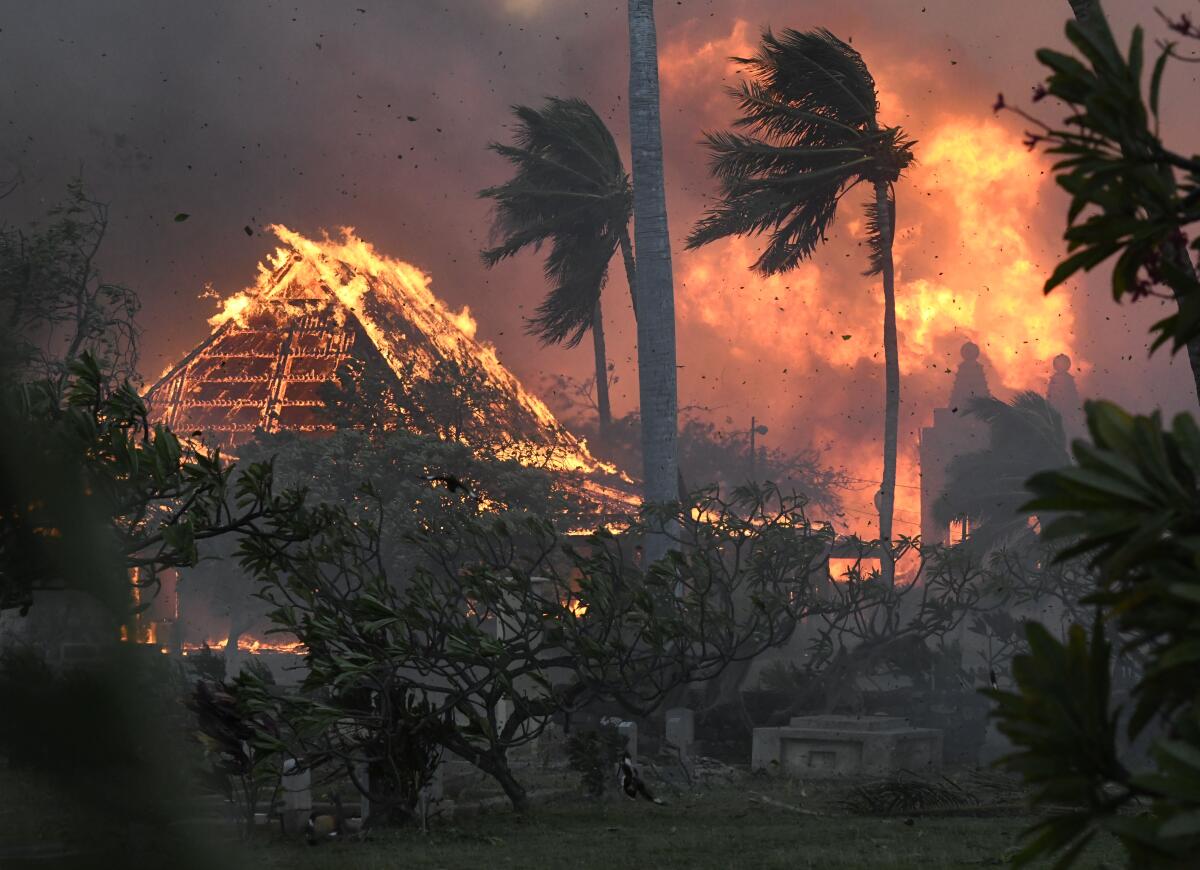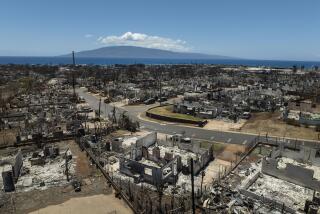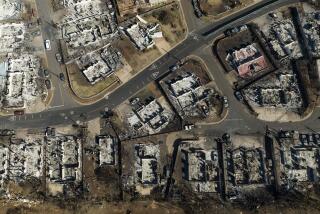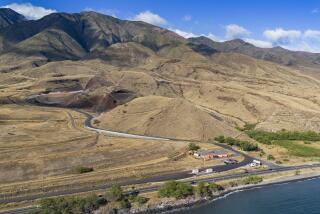$4-billion settlement reached in lawsuit over Maui fires, court filings say

HONOLULU — The parties in lawsuits seeking damages for last year’s Maui wildfires have reached a $4-billion global settlement, a court filing said Friday, nearly one year after the deadliest U.S. wildfire in more than a century.
The term sheet with details of the settlement is not publicly available, but the liaison attorneys filed a motion saying the global settlement seeks to resolve all Maui fire claims for $4.037 billion. The motion asks the judge to order that insurers can’t separately go after the defendants to recoup money paid to policyholders.
The settlement was reached amid fears that Hawaiian Electric, the utility that some blame for sparking the blaze, could be on the brink of bankruptcy.
The federal Bureau of Alcohol, Tobacco, Firearms and Explosives is investigating the Aug. 8, 2023, fires that killed 102 people and destroyed the historic downtown area of Lahaina.
Gilbert Keith-Agaran, a Maui attorney who represents victims, including families who lost relatives, said the amount was “woefully short.” But he said it was a deal that plaintiffs needed to consider given Hawaiian Electric’s limited assets and potential bankruptcy.
The agreement was the first step toward getting fire victims compensation, said Jake Lowenthal, a Maui attorney selected as one of four liaisons for the coordination of the cases. More work needs to be done on how to divvy up the amount.
“We’re under no illusions that this is going to make Maui whole,” Lowenthal told the Associated Press. “We know for a fact that it’s not going to make up for what they lost.”
Thomas Leonard, who lost his condo in the fire and spent hours in the ocean behind a seawall hiding from flames, welcomed the news.
“It gives us something to work with,” he said. “I’m going to need that money to rebuild.”
Hawaiian Electric, one of seven defendants, said payments would begin after final approval and were expected no earlier than the middle of next year, it said.
“For the many affected parties to work with such commitment and focus to reach resolution in a uniquely complex case is a powerful demonstration of how Hawaii comes together in times of crisis,” Chief Executive Shelee Kimura said in a statement.
The defendants, which include the state of Hawaii, will pay the $4.037 billion to compensate those who already have brought claims, Gov. Josh Green said. He called the proposed settlement an agreement in principle and said it would “help our people heal.”
“My priority as governor was to expedite the agreement and to avoid protracted and painful lawsuits so as many resources as possible would go to those affected by the wildfires as quickly as possible,” he said in a statement.
He said it was unprecedented to settle lawsuits like this in only one year.
“It will be good that our people don’t have to wait to rebuild their lives as long as others have in many places that have suffered similar tragedies,” Green said.
On Wednesday, Green told the AP in an interview that the settlement money would be important for Lahaina’s recovery.
More than 600 lawsuits have been filed over the deaths and destruction caused by the fires, which burned thousands of homes and displaced 12,000 people. In spring, a judge appointed mediators and ordered all parties to participate in settlement talks.
Defendant Maui County said the agreement represents a shared commitment between the parties to continue negotiating in good faith toward a larger, detailed resolution that would seek to equitably distribute the settlement money.
The state’s largest landowner, Kamehameha Schools, a charitable trust formerly known as the Bishop Estate, said it’s agreed to contribute a portion of the settlement assuming a final binding agreement is reached.
Two other defendants, Hawaiian Telcom and West Maui Land Co., did not immediately respond to email messages or phone calls seeking comment. Spectrum/Charter Communications declined to comment.
McAvoy and Kelleher write for the Associated Press. Times staff contributed to this report.
More to Read
Sign up for Essential California
The most important California stories and recommendations in your inbox every morning.
You may occasionally receive promotional content from the Los Angeles Times.










